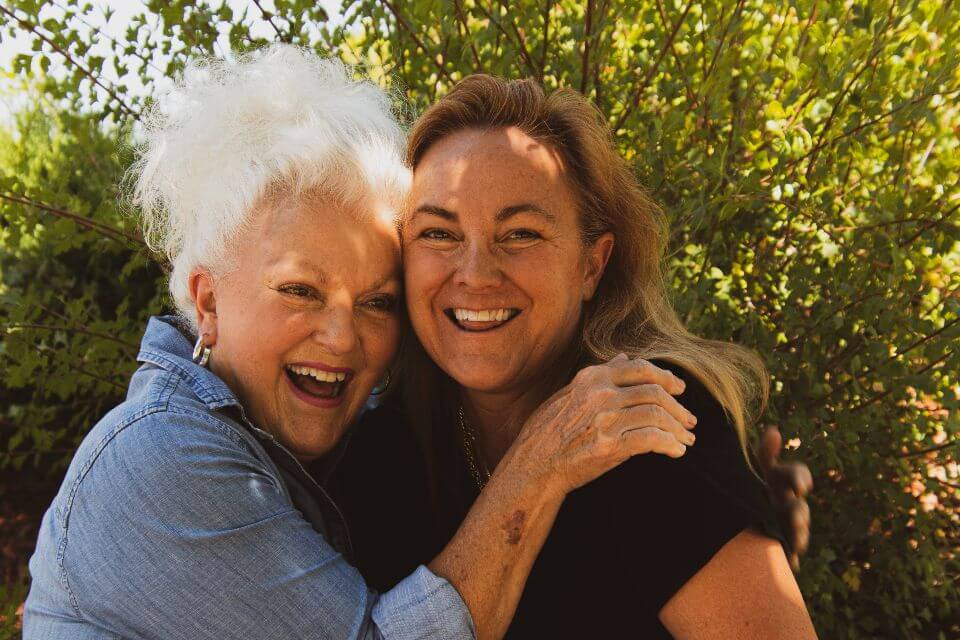Giving up Your Life to Care for Elderly Parent
As our loved ones age, it can become increasingly difficult for them to take care of themselves. This is where we step in as their children, to help them live out their golden years with dignity and respect.
But what happens when the responsibility of caring for an aging parent becomes overwhelming? When the day-to-day tasks and emotional toll become too much to bear? For many adult children, giving up their own lives to care for their elderly parent becomes a difficult decision.
There are many factors to consider when deciding to become a full-time caregiver for an elderly parent. It’s important to think about the impact it will have on your own life, as well as the impact on your relationship with your parent. In this blog post, I will discuss some of the pros and cons of giving up your life to care for an elderly parent.
Pros:
1. You can provide personalized care

One of the biggest advantages of caring for an elderly parent is the ability to provide personalized care. When you’re the primary caregiver, you can tailor your parent’s care to their individual needs. You can ensure that they receive the attention and care they need, and you can make sure that their daily routines and activities are suited to their preferences.
2. You can spend quality time with your parent

Caring for an elderly parent can be an opportunity to spend quality time with them. Many adult children report feeling closer to their parents when they become their caregiver. This is because they have the opportunity to bond with them on a deeper level and create meaningful memories.
3. You can save money
Professional care can be expensive, and many elderly parents simply can’t afford it. By becoming their caregiver, you can save them the cost of hiring a professional and provide care at no cost to them. Additionally, you can save money on your own living expenses by moving in with them or having them move in with you.
Cons:
1. It can be emotionally draining

Caring for an elderly parent can be emotionally draining. Watching them age and deteriorate can take a toll on your mental health. Additionally, the stress of being a full-time caregiver can be overwhelming, and it can be difficult to find time for your own self-care.
2. It can be physically demanding
Caring for an elderly parent can also be physically demanding. Many elderly parents require help with basic activities like bathing, dressing, and eating. This can be physically taxing, and it can be difficult to keep up with their needs as they age and their health declines.
3. It can impact your own life
When you become a full-time caregiver, it can impact your own life in significant ways. You may have to put your career on hold, which can have long-term financial consequences. Additionally, you may have to give up your own social life and hobbies to care for your parent, which can be isolating and lonely.
Tips for giving up your life to care for an elderly parent:
1. Set realistic expectations
It’s important to set realistic expectations for yourself and your parent. Understand that caregiving is a full-time job, and it will require a significant amount of time and energy. Don’t expect to be able to do everything perfectly, and don’t be too hard on yourself if you make mistakes.
2. Get support

Caregiving can be isolating, so it’s important to get support. This can be from friends, family, or a support group. There are many resources available for caregivers, including online forums, local support groups, and professional counseling.
3. Take care of yourself
As a caregiver, it’s important to take care of yourself. This means getting enough rest, eating well, and making time for exercise and hobbies. Additionally, it’s important to prioritize your mental health by seeking professional help if you’re feeling overwhelmed.
4. Consider getting outside help
While becoming a full-time caregiver for an elderly parent can be a noble and rewarding decision, it’s important to understand that it’s not always feasible or sustainable. You may want to consider getting outside help, such as hiring a part-time caregiver or enlisting the help of family members. This can allow you to have some time to yourself and prevent burnout.
5. Communicate openly with your parent
It’s important to communicate openly with your parent about their care and your own needs. This means having difficult conversations about their health and future care, as well as setting boundaries for your own well-being. By being honest and upfront, you can build a stronger relationship with your parent and ensure that their care is sustainable in the long run.
6. Plan for the future
As your parent ages, it’s important to plan for the future. This means making arrangements for their long-term care, such as setting up a power of attorney or creating a living will. It’s also important to consider your own future, and plan for your own financial and emotional needs as a caregiver.
How can I ensure that my own well-being is taken care of while caring for my parent?
As a caregiver for an aging parent, your primary responsibility is to ensure their comfort and well-being. However, in the process, it is crucial to prioritize your own mental and physical health. The demands of caregiving can be overwhelming and can take a toll on your personal life. Here are some tips on how you can ensure that your own well-being is taken care of while caring for your parent.
Firstly, it’s essential to establish clear boundaries. Caring for an aging parent can often be an emotional and challenging task, and it’s essential to establish clear boundaries to separate your caregiving responsibilities from your personal life. It can be helpful to set specific times for caregiving and to ensure that you have time to pursue your hobbies and interests outside of your caregiving duties.
Secondly, take care of your physical health. Caregiving can be physically demanding, and it’s essential to prioritize your physical health to avoid burnout. Ensure that you are eating a healthy diet, getting regular exercise, and getting enough sleep.
Thirdly, seek support. Caring for an aging parent can be a challenging and emotional task, and it’s essential to seek support from family, friends, or support groups. Talking to others who are going through similar experiences can be an excellent way to relieve stress and feel less isolated.
What financial resources are available for caregivers?
Caring for a loved one can be a fulfilling experience, but it can also come with its share of financial burdens. Fortunately, there are several financial resources available for caregivers to help offset the costs associated with providing care. Here are some options to consider.
Firstly, government assistance programs can provide financial support to caregivers. Medicaid and Medicare, for example, can cover medical costs associated with caring for an aging loved one. The Older Americans Act can also provide funding for meal programs, transportation, and caregiver support services.
Secondly, non-profit organizations can provide financial assistance to caregivers. The National Family Caregiver Support Program provides financial assistance for respite care, home modifications, and other caregiving-related expenses. The Alzheimer’s Foundation of America provides grants for respite care and caregiver support services.
Thirdly, private insurance policies can cover some caregiving costs. Long-term care insurance policies can cover the cost of nursing home care, in-home care, and other expenses associated with caregiving.
Lastly, tax credits and deductions can help offset the financial burden of caregiving. The Caregiver Tax Credit allows eligible caregivers to receive a tax credit for caring for an aging loved one. Additionally, medical expenses related to caregiving may be tax-deductible.
How do I know if I’m making the right decision to become a full-time caregiver?
Making the decision to become a full-time caregiver is a significant one that can have long-lasting effects on your life. It’s natural to have doubts and concerns about whether it’s the right decision for you. Here are some factors to consider when making this important decision.
Firstly, assess your personal and financial situation. Consider whether you have the financial resources and support system to be a full-time caregiver. This includes evaluating your income, savings, and retirement plans.
Secondly, consider your loved one’s needs and condition. Understand the level of care and support they require and whether you have the necessary skills and knowledge to provide it. Consider the impact that caregiving will have on your loved one’s quality of life and well-being.
Thirdly, evaluate your personal goals and aspirations. Think about how caregiving will impact your personal and professional goals. Consider how caregiving will affect your ability to pursue hobbies, social activities, and relationships.
Lastly, seek advice from trusted sources. Talk to other caregivers, healthcare professionals, and financial advisors to gain insights and guidance on making the right decision.
What legal considerations should I keep in mind when caring for my elderly parent?
Caring for an elderly parent can be a challenging and complex task, and it’s important to consider the legal implications that come with it. Here are some legal considerations to keep in mind when caring for your elderly parent.
Firstly, ensure that you have the proper legal authority. If your parent is incapacitated, you may need to obtain legal guardianship or power of attorney to make decisions on their behalf. This will give you the legal authority to make important decisions about their healthcare, finances, and other matters.
Secondly, protect your parent’s assets and finances. Be aware of potential scams and financial exploitation that may target vulnerable seniors. Consider consulting with a financial advisor or elder law attorney to ensure that your parent’s assets are properly protected and managed.
Thirdly, understand your parent’s healthcare rights and options. This includes understanding their right to privacy, informed consent, and access to medical care. Consider consulting with a healthcare attorney or elder law attorney to ensure that you are fully informed about your parent’s healthcare rights and options.
Lastly, plan for the future. Consider consulting with an estate planning attorney to ensure that your parent’s wishes regarding their healthcare and assets are properly documented and protected.
Conclusion
Giving up your life to care for an elderly parent can be a difficult decision, but it can also be a rewarding and fulfilling experience. It’s important to weigh the pros and cons carefully and make a decision that is right for you and your parent.
With the right support and resources, you can provide personalized care for your parent while also taking care of your own well-being. Remember to set realistic expectations, get support, take care of yourself, consider getting outside help, communicate openly with your parent, and plan for the future.
